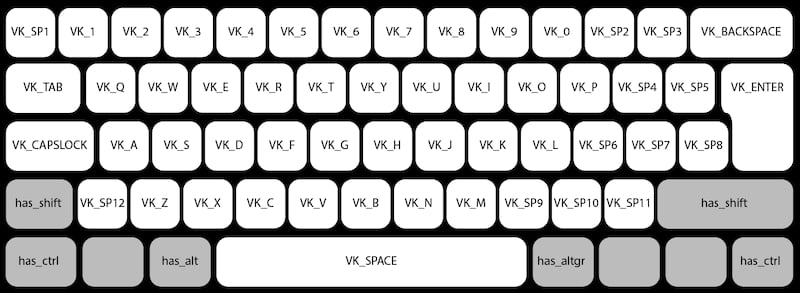3 releases
Uses old Rust 2015
| 0.1.2 | Aug 11, 2019 |
|---|---|
| 0.1.1 | Aug 10, 2019 |
| 0.1.0 | Aug 10, 2019 |
#437 in Simulation
57 downloads per month
41KB
589 lines
Simulating keyboard on Linux, Windows and Mac OS in rust
On the next example, the library simulates key A, Z pressed.
The keyboard layout on the computer is important!
If you use a keyboard layout the US, you have corresponding keys, but if you use, for example, the french layout, you have another result.
extern crate keybd_event;
#[cfg(target_os = "linux")]
use std::thread::sleep;
#[cfg(target_os = "linux")]
use std::time::Duration;
use keybd_event::KeyboardKey::{KeyA,KeyZ};
use keybd_event::KeyBondingInstance;
fn main() {
let mut kb = KeyBondingInstance::new().unwrap();
#[cfg(target_os = "linux")]
sleep(Duration::from_secs(2));
kb.has_shift(true);
kb.add_keys(&[KeyA, KeyZ]);
kb.launching();
}

Linux
On Linux this library use uinput, but generally the uinput is only for the root user.
The easy solution is executing on root user or change permission by chmod, but it is not good.
You can follow the next example, for more security.
sudo groupadd uinput
sudo usermod -a -G uinput my_username
sudo udevadm control --reload-rules
echo "SUBSYSTEM==\"misc\", KERNEL==\"uinput\", GROUP=\"uinput\", MODE=\"0660\"" | sudo tee /etc/udev/rules.d/uinput.rules
echo uinput | sudo tee /etc/modules-load.d/uinput.conf
Another subtlety on Linux, it is important after creating KeyBondingInstance, to waiting 2 seconds before running first keyboard actions
Darwin (MAC OS)
This library depends on the frameworks Apple, I did not find a solution for cross-compilation.
Dependencies
~0–425KB